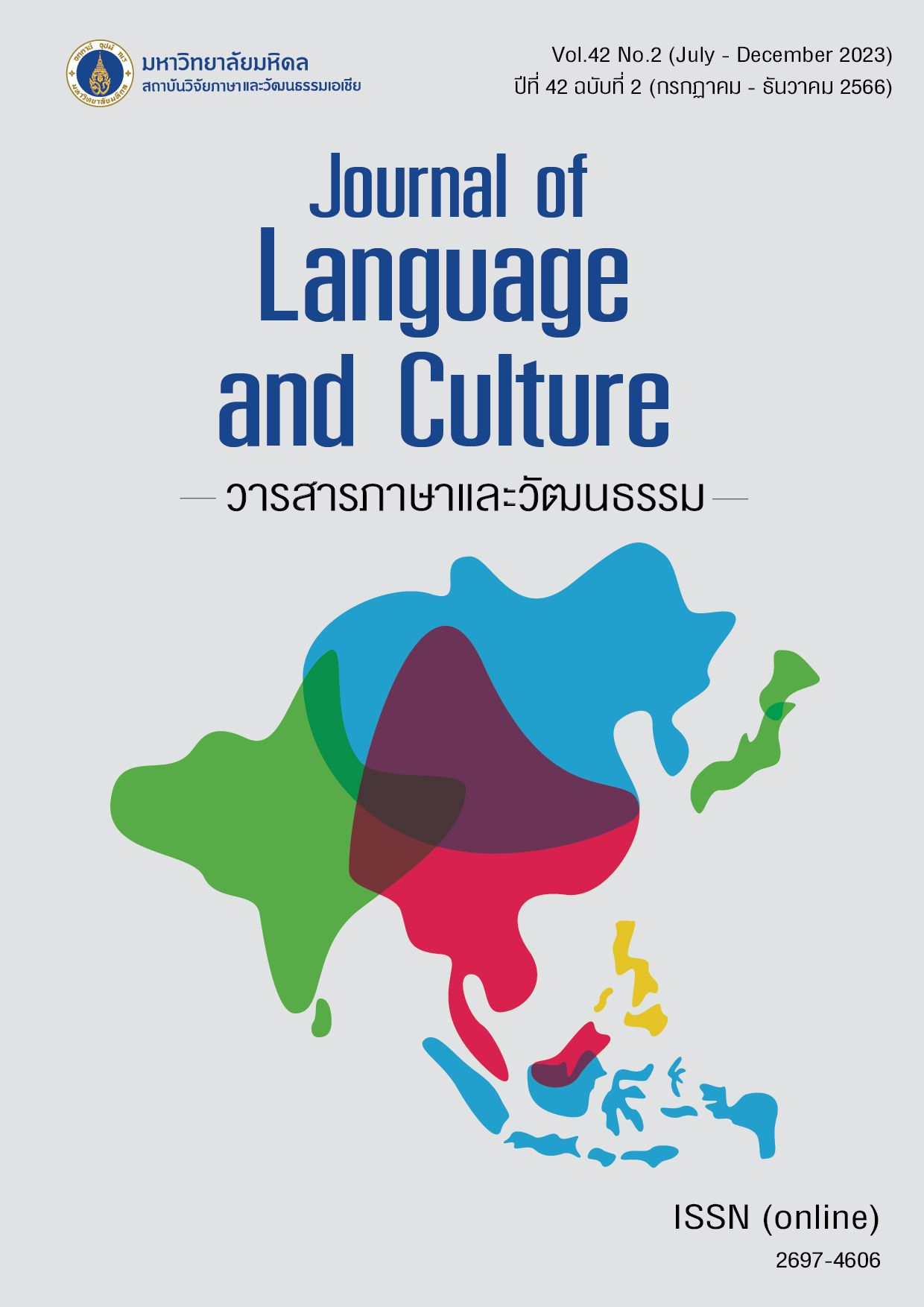The glocalization and representation of the metropolis and the countryside in Korean Drama Hometown Cha Cha Cha and Malaysian novel Between Lives
Main Article Content
Abstract
This article examines the glocalization and representation of the metropolis and the countryside in Korean drama Hometown Cha Cha Cha and a Malaysian novel Between Lives. Despite the difference of its geographical landscape, these two selected stories share similar genre of the so-called returning to the countryside plot. For research methodology, glocalization ideology, Stuart Hall’s representation theory and Julia Kristeva’s Intertextuality are employed in conducting research. The objectives are to contrastively compare the plot, characters, theme, dictions and effects towards audiences between the drama and the novel, to analyze and theorize the process of glocalization in the drama and the novel and to extract the representation of the metropolis and the countryside. Research results reflect the localism as a process in its glocalization strategy. In this context, practicing glocalization needs localism in commodifying the culture and the countryside. Thus, the presentation of hometown and native land brings the protagonists back to their childhood memories and experiences. This article reveals the representation of metropolis and capitalism as villains and the representation of the countryside as healer. Besides, elderly women play important role in both stories as the spirit and wisdom of the village.
Article Details
The articles featured in the Journal of Language and Culture (JLC) constitute academic works representing the viewpoints of the respective author(s). It is crucial to note that these opinions do not necessarily reflect those of the Editorial Board.
All articles published in JLC are released under the Creative Commons Attribution 4.0 International License (CC BY 4.0). This license grants permission for unrestricted use, distribution, and reproduction in any medium, provided proper credit is given to the original author(s) and the source.


